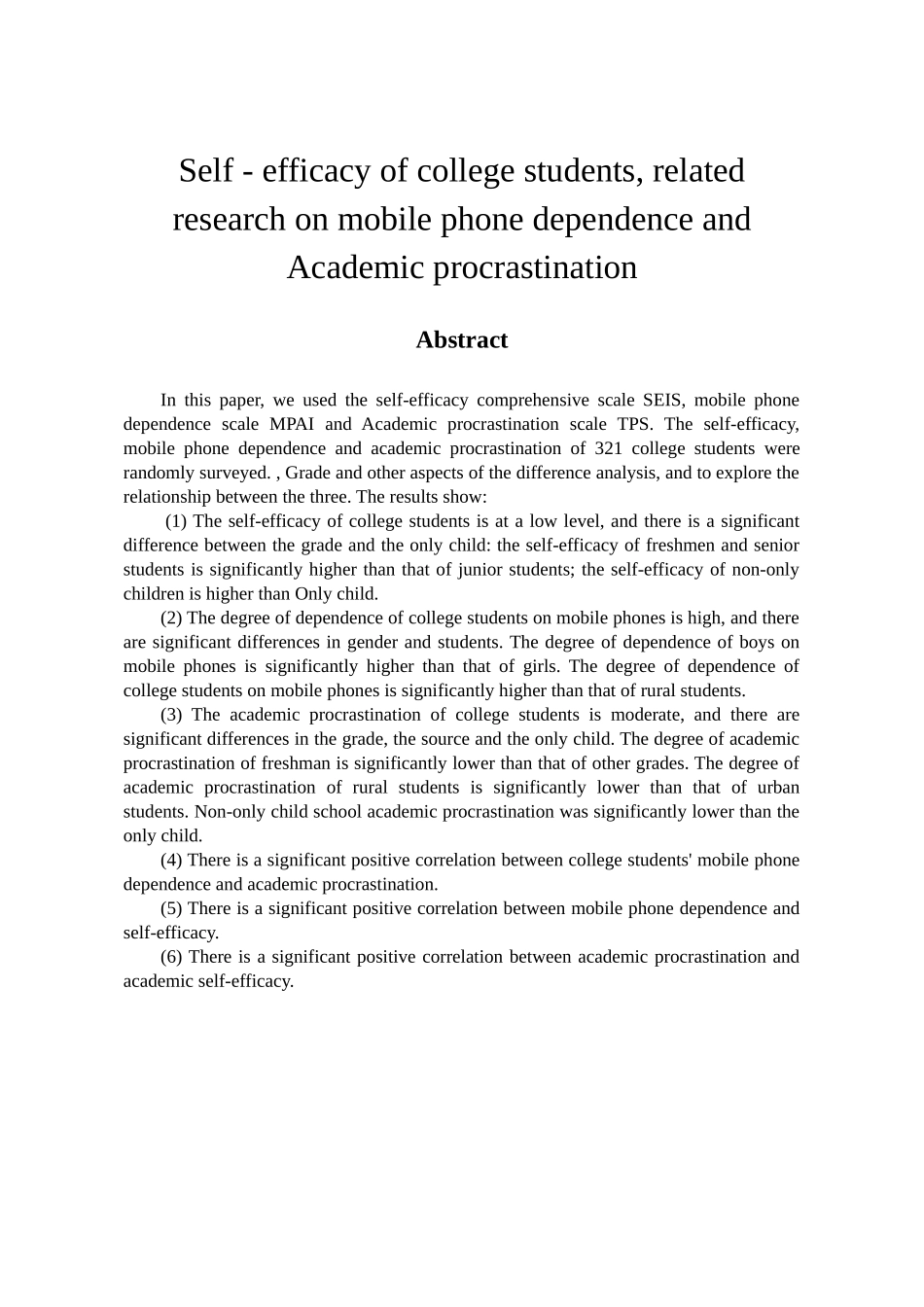大学生自我效能感、手机依赖与学业拖延的相关研究摘 要本文采用《自我效能感综合量表 SEIS》、《手机依赖量表 MPAI》、《学习拖延量表 TPS》,通过网络随机调查 321 名大学生的自我效能感、手机依赖及学业拖延的现状,从性别、年级等方面进行差异分析,并探讨三者之间的关系。结果表明: (1)大学生自我效能感处于偏低水平,在年级和是否独生子女上存在显著差异:大一和大四学生的自我效能感显著高于大三学生;非独生子女的自我效能感显著高于独生子女。(2)大学生手机依赖程度偏高,在性别和生源地上存在显著差异:男生手机依赖的程度显著高于女生;城镇来源的大学生手机依赖程度显著高于农村来源的大学生。(3)大学生学业拖延处于中等程度,在年级、生源地和是否独生子女上存在显著差异:大一学生学业拖延程度显著低于其他年级;农村来源的大学生学业拖延程度显著低于城镇来源大学生。非独生子女学业拖延程度显著低于独生子女。(4)大学生手机依赖与学业拖延呈显著正相关。(5)大学生手机依赖与自我效能感呈显著正相关。(6)大学生学业拖延与学业自我效能感呈显著正相关。【关键词】 大学生;自我效能感;手机依赖;学业拖延Self - efficacy of college students, related research on mobile phone dependence and Academic procrastinationAbstractIn this paper, we used the self-efficacy comprehensive scale SEIS, mobile phone dependence scale MPAI and Academic procrastination scale TPS. The self-efficacy, mobile phone dependence and academic procrastination of 321 college students were randomly surveyed. , Grade and other aspects of the difference analysis, and to explore the relationship between the three. The results show: (1) The self-efficacy of college students is at a low level, and there is a significant difference between the grade and the only child: the self-efficacy of freshmen and senior students is significantly higher than that of junior students; the self-efficacy of non-only children is higher than Only child.(2) The degree of dependence of college students on mobile phones is high, and there are s...


